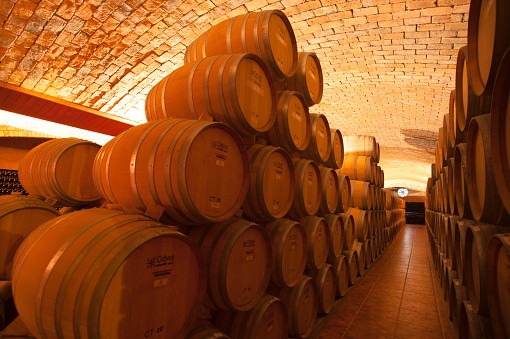Brazilian wineries in South Brazil, especially those planning to export their products to other countries, are looking at China as a major customer, China Daily reported.
"We started our business with Chinese clients in the year 2015. Although it is far from a long and permanent cooperation, we can foresee the potential of the Chinese market," Giorgia Forest, sales manager at Aurora Winery, said.
According to Forest, the trading of Brazilian wines with China is on the rise, which accounts for about 50 percent of their whole exports. She said they receive positive response when they introduce several kinds of Brazilian wines with all the price levels to China.
Wine consumption has decreased recently due to the economic slowdown in Brazil, and south Brazil wineries have resorted to new marketing ways to keep their businesses.
Miolo wines, another popular brand in Brazil, have been selling wines to China for four years. Anderson Tirloni, export manager of Miolo Winery, said that they have five shops in Shanghai, Sanya in Hainan Province, Guangzhou in Guangdong Province, and other major Chinese cities. He said that Miolo wines are also available on online e-commerce platforms in China.
Tirloni added that before they entered the Chinese wine market, the company conducted extensive market research. He said they have also chosen certain wines to be sold in China as Chinese consumers have a different wine taste and also to make it more acceptable to them. Like Aurora Wines, they also have a range of prices for different wines that clients can choose from.
According to Tirloni, each shipment of wine to China can have as much as 10,000 bottles.
"Besides, Chinese clients are paying more and more attention to the quality of wine, which is exactly a specialty of Brazilian wine. Since the market has been opened up, it is a great opportunity from all wineries in Brazil," Tirloni said.
Compared to other wines, Brazilian wines have a pure scent, a softer taste and have lower alcohol content, said Diego Bertolini, wine taster at the Brazil Wine Institute. He added that new grape-growing methods and advanced wine-making technology have enabled wineries in Brazil to produce different types and levels of wines.
The interest in Sino-Brazil wine trade is growing and Bertolini said that the wine business has potential future.
"We are planning to organize some of our wineries to go to China this year. We will hold a wine fair to introduce our Brazilian wine and let more Chinese people know about us," Bertolini said.
"It is a long distance from Brazil to China, but it is our belief that we share the same fancy for qualified wine. We sincerely hope that Chinese people can grow to like our wine," he added.




























